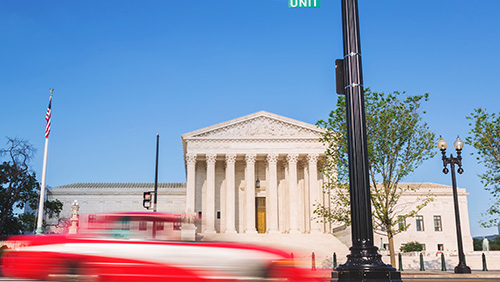The fight between Oklahoma’s governor, Kevin Stitt, and state tribes continues to rage on. Governor Stitt has asserted that amended compacts are due, while the tribes believe the existing agreements rolled over at the start of the new year. With neither side backing down from its position, the governor now wants the federal courts to get involved and, hopefully, find closer to the ongoing saga. For that to happen, he wants a judge to declare the tribes in violation of state laws.
 According to the Associated Press (AP), Governor Stitt has asked a federal judge to order the tribes to halt the majority of their electronic and table games, and to rule that the operation of any Class III electronic game by the tribes is illegal. He also wants a trust to be created so that the state can receive its cut of the existing revenue-sharing agreements while the litigation continues.
According to the Associated Press (AP), Governor Stitt has asked a federal judge to order the tribes to halt the majority of their electronic and table games, and to rule that the operation of any Class III electronic game by the tribes is illegal. He also wants a trust to be created so that the state can receive its cut of the existing revenue-sharing agreements while the litigation continues.
The move comes following a lawsuit submitted by three of the state’s tribes, the Cherokee, Chickasaw and Choctaw nations, against the governor. That lawsuit hopes to find a resolution in the ongoing dispute and, this week, the Muscogee (Creek) tribe joined the fight. It is prepared to spend up to $500,000 in relation to the suit, according to the AP.
Governor Stitt argues that the revenue-sharing compact is too generous to the tribes, and that they need to be willing to give up a larger portion of their revenue to the state. The tribes hand over 10% of their table game revenue and 4-6% of slot revenue, and the governor wants them to pay more than double that amount, looking for between 20-25%, depending on the activity. However, he can’t legally make changes to the compact while they’re valid.
The tribes have consistently argued that the existing compacts automatically renewed at the beginning of 2020, per their language. They have indicated their willingness to negotiate new agreements, but only if Governor Stitt is willing to admit that the compact auto-renewed. So far, Governor Stitt has not been willing to offer that concession.
Bill Anoatubby, the governor of the Chickasaw Nation, believes a federal legal battle may be the only alternative to finding a solution. When the tribes submitted their lawsuit earlier this month, he asserted, “While we prefer negotiation to litigation, the federal court is now the only reasonable alternative to bring legal certainty to this issue. We remain hopeful we will continue to have a productive and mutually beneficial relationship with the State of Oklahoma once we have resolved this issue.”
The chief of the Choctaw Nation, Gary Batton, agrees. He added that Governor Stitt’s position on the compacts “has created uncertainty and has been seen as a threat to our employees and our business partners. We see this legal action as the most viable option to restore the clarity and stability the tribes and Oklahoma both deserve by obtaining a resolution that our compact does automatically renew.”
It isn’t surprising that Governor Stitt, also a Cherokee Nation member, is holding out for more revenue. According to figures released by the state, the tribes handed over almost $139 million in 2018, but they took in about $2.3 billion. He says of the tribes’ lawsuit, “I am disappointed that a number of Oklahoma tribes, led by the Chickasaw, Cherokee, and Choctaw Nations, did not accept the State’s offer on Oct. 28 for a three-person arbitration panel to resolve our dispute outside of court. This was … a win-win for all parties. I was elected to represent all four million Oklahomans, and I will continue to be laser-focused on an outcome that achieves a fair deal and is in the best interest of the state and its citizens.”






